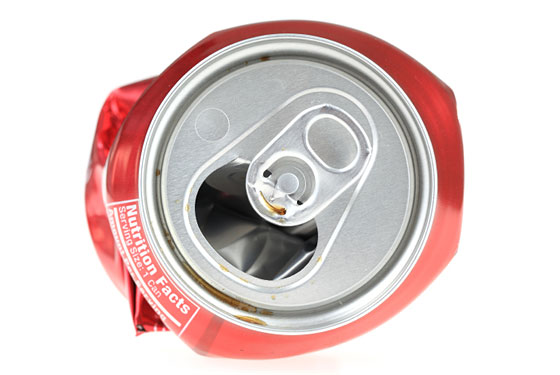
What is it about David Paterson’s proposed sugary-beverage tax that cuts across political lines, uniting us in irritation? Conservatives profess to hate any new taxes or governmental meddling in private sipping behavior. Liberals dislike that a soda tax is regressive, hitting the underclass hardest, and when pressed, many of them say that it’s just absurd, a classically obnoxious nanny-state initiative. It is, after all, predicated on the same idea as the huge cigarette-tax increases of a few years ago: Tobacco and sugary drinks are both bad for you, and high prices curb their consumption. If the retail price of soda were to creep up by a penny an ounce (44 cents per Super Big Gulp, 72 cents per six-pack), you might in fact cut back. After the smoking ban and tax hikes, 140,000 New Yorkers quit smoking, according to the Centers for Disease Control.
Except that your tax dollars are simultaneously being used to promote soda-drinking. Since the eighties, the sweetener in most non-diet sodas has been high-fructose corn syrup, or HFCS. It is made from American corn rather than imported cane, and it is inexpensive, at about 30 cents a pound wholesale. (A pound is enough to make about eleven cans of Coca-Cola.) Mind you, it’s not really cheaper than cane sugar: Federal farm subsidies, amounting to about $20 billion per year, are twinned with a sugar tariff to stack that deck in favor of HFCS. In a free market, the bottom would fall out of corn prices, and the Midwest’s economy would start to look like Greece’s.
In short: We pay federal taxes to make that can of Mountain Dew cheaper than it should be, encouraging us to buy it. Then we are scolded by public-health authorities for doing so. Then New York proposes another tax, to discourage us from buying it. This is nuts.
HFCS is, today, slipped into practically every prepared food, from ketchup to soup, because consumers respond to sweetness, particularly when it comes cheap. It’s the legacy of Earl Butz, the Nixon-era secretary of Agriculture, who had one mission: Increase production to stamp out hunger. It worked a little too well, giving us a consistent corn glut.
Some of us might not even mind subsidizing wholesome family farms in hard times, but most of the money heads straight to megacorporations like Archer Daniels Midland, in an egregious bit of corporate welfare. (Kansans who vote hard-line Republican and howl about federal spending tend to go quiet and look at their shoes when you mention this.) ADM makes HFCS by the megaton, and the Cato Institute has figured that every $1 of profit ADM earns in this business costs consumers $10.
Even Earl Butz might have had second thoughts if he’d seen the study released last month by Princeton University. It showed decisively that rats gain more weight from eating HFCS than from cane sugar. Chart the adoption of HFCS by the food industries, and it lines up pretty closely with Americans’ thickening profiles. No, correlation does not equal causation. But it’s a hell of a hint.
The brain-dead-obvious solution is to eliminate both taxes and even things out, right? Well, two words scuttle that idea: Iowa caucuses. As long as a corn-producing state holds the definitive first primary, we’re going to have pro-corn presidents. Till that changes, drink seltzer, like a good New Yorker. No salt, no sugar, no subsidy.
Have good intel? Send tips to intel@nymag.com.
